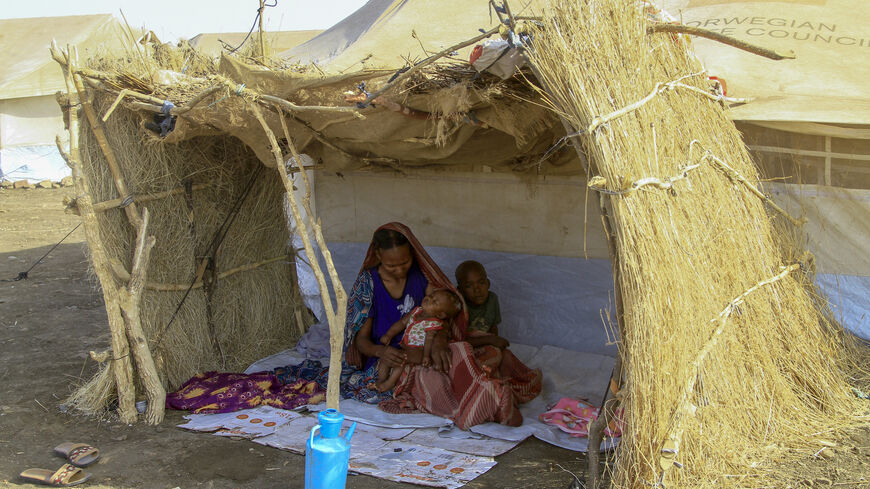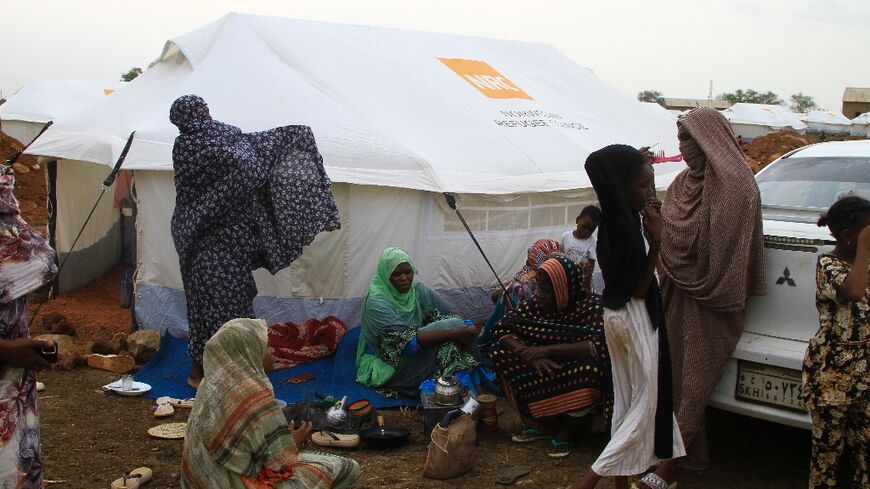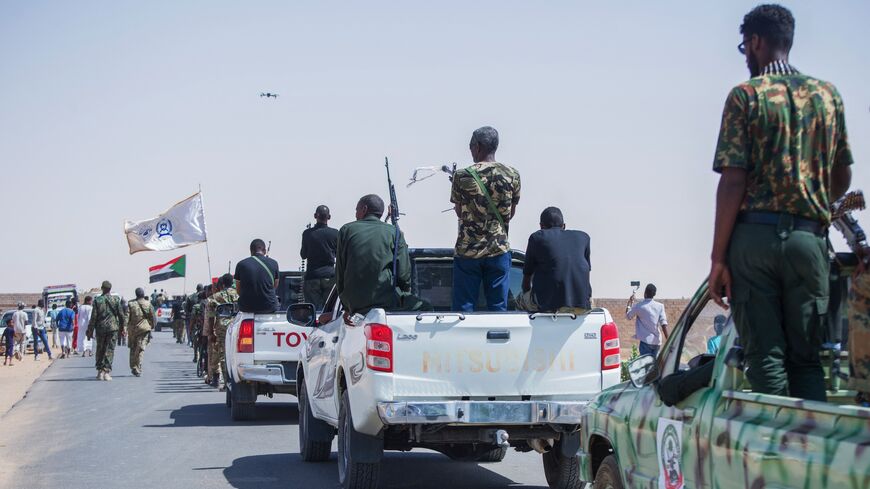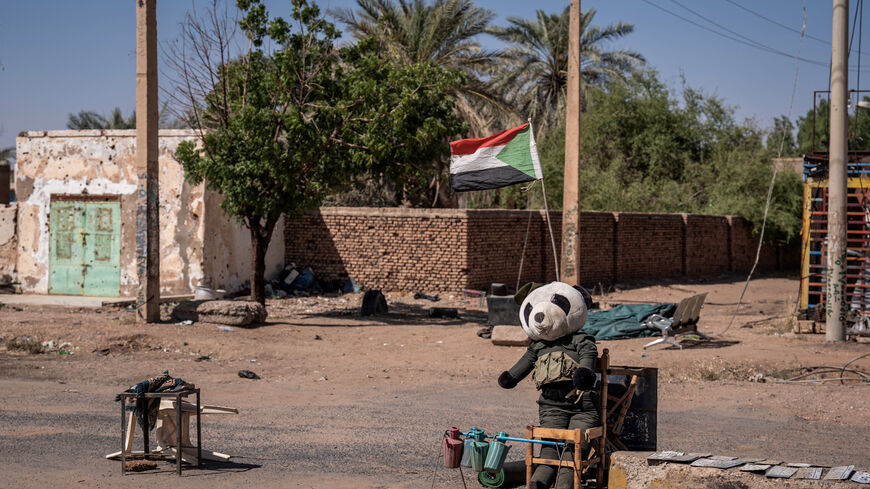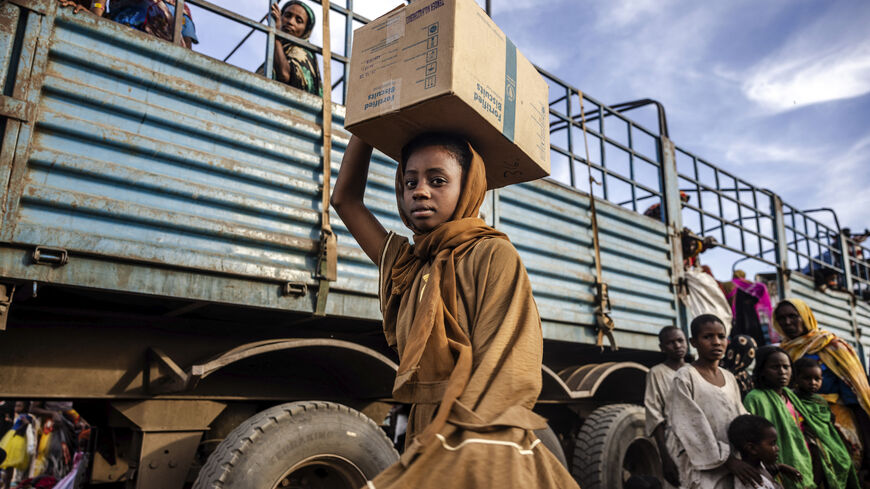Sudan: Darfur graveyards swell threefold as 25.6M suffer food shortage
Sudan is witnessing one of the worst humanitarian crises in decades as rights groups are sounding the alarm over the deteriorating conditions and looming famine.

Graveyards in Sudan’s Darfur region have exploded since the devastating war pitting the Sudanese army against the paramilitary Rapid Support Forces erupted more than a year ago, an investigative report released Thursday revealed.
The violence that has brought one of the world’s worst humanitarian crises in decades to the country has forced dozens of graveyards across Darfur to swell, according to a report published by Reuters. The news agency analyzed satellite images and identified “14 burial grounds in five communities across Darfur that have expanded rapidly in recent months.”
“The area of new graves at these burial grounds has grown up to three times faster in the first half of 2024 than in the second half of last year,” the report read.
Reuters further warned about the rapid spread of hunger and disease across Sudan.
In a report last week, Reuters cited preliminary projections released by a famine watchdog, which estimates that 756,000 people in Sudan could face “catastrophic levels of hunger” within three months.
The Rome-based Integrated Food Security Phase Classification also estimated that around 25.6 million people in Sudan are suffering critical food shortages, including more than 9 million facing an emergency or worse.
UN agencies and rights groups have repeatedly warned against what they call a man-made humanitarian crisis and looming famine since the war began last April.
السودان يواجه مجاعة قد تصبح أسوأ من أي مجاعة شهدها العالم منذ إثيوبيا قبل 40 عامًا، حيث لا تزال الجيوش المتحاربة تمنع تسليم المساعدات، لكن إمدادات الأسلحة لكلا الجانبين مستمرة في التدفق.
— SalmaⓂ️ansour (@salmamandour8) June 18, 2024
مع تركيز الكثير من اهتمام العالم على غزة، مسرح مجاعة أخرى من صنع الإنسان، يعد السودان بالفعل… pic.twitter.com/g7ypQum8CD
On Wednesday, the head of the UN emergency relief agency in Sudan, Justin Brady, said there is a “warning of famine” in Sudan.
“The images from some areas are reminiscent of the worst of any famine we have seen elsewhere,” he told UN News.
“We’re in a race against time,” he added, saying “access, resources and attention” were the main problems hindering an immediate response to the crisis.
Medical charity Doctors Without Borders also sounded the alarm on Thursday, warning, “Sudan is one of the worst crises the world has seen for decades.” The group's president, Christos Christou, wrote in an open letter on Sudan posted on the X platform, “There are extreme levels of suffering across the country, and the needs are growing by the day.”
“Sudan is one of the worst crises the world has seen for decades... yet the humanitarian response is profoundly inadequate,” says @DrChristou, in his open letter 👇 pic.twitter.com/QNoC2s5tMR
— MSF International (@MSF) June 20, 2024
Christou said people are dying due to “violence-related injuries and preventable diseases” amid a lack of vaccines. The health sector is collapsing, he added, affecting the lives of millions across the country.
Amid these conditions, Christou said, “The humanitarian response is profoundly inadequate,” accusing the warring sides of blocking aid access and denying permits to humanitarian workers.
“This level of international neglect is shocking,” he warned, stressing the urgency of “a large-scale humanitarian response, safe humanitarian access to all areas of the country and full respect for international humanitarian law.”
The conflict in Sudan erupted on April 15, 2023, as the Sudanese Armed Forces and the Rapid Support Forces vied for power after years of instability that followed the fall of longtime dictator Omar al-Bashir in April 2019.
The death toll of the war remains unclear. While UN aid agencies estimate that more than 15,000 people have been killed since the war began, US special envoy for Sudan Tom Perriello believes the number to be as high as 150,000.
Meanwhile, the war has also created one of the world’s worst displacement crises, with more than a quarter of Sudan’s population of 47 million forced to flee their homes. The number of internally displaced people from the war has surpassed 10 million, according to the UN International Organization for Migration. More than 2 million others have been forced to flee abroad, many of them to Chad, South Sudan and Egypt.



